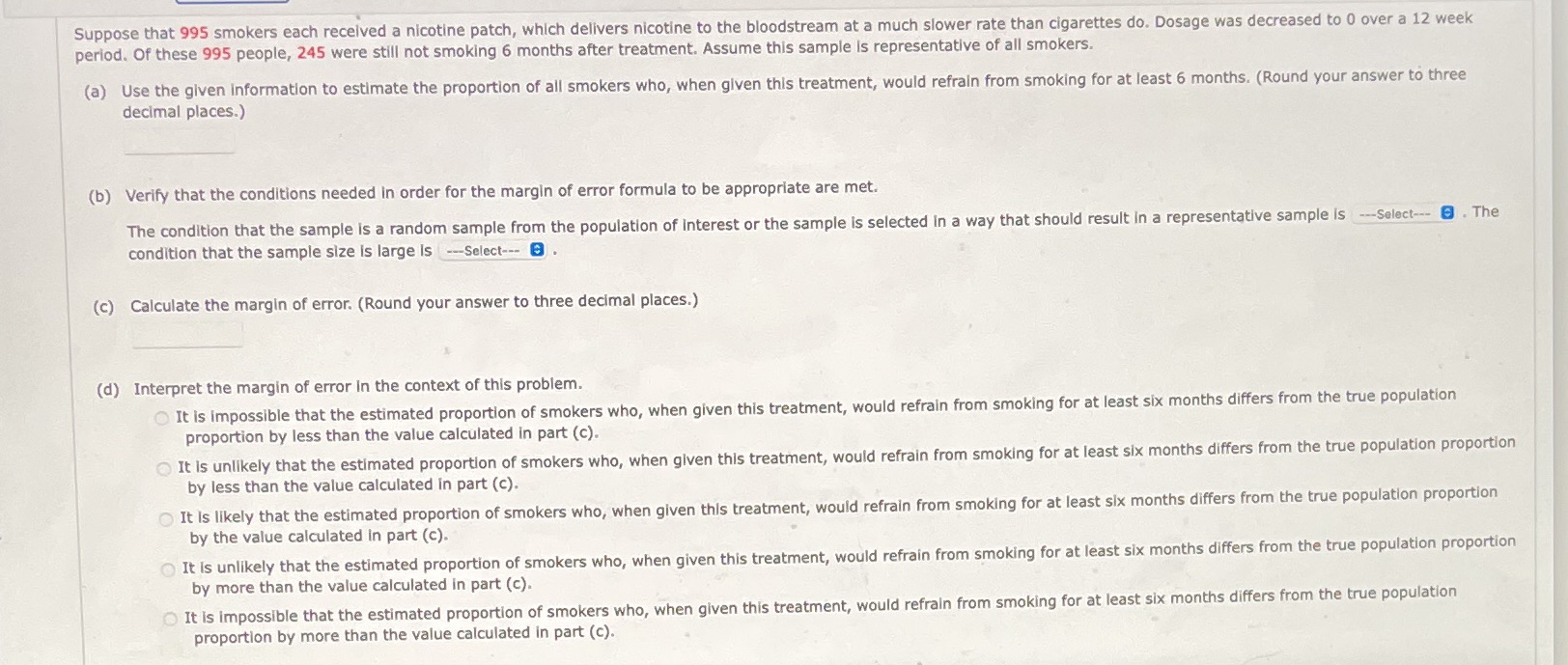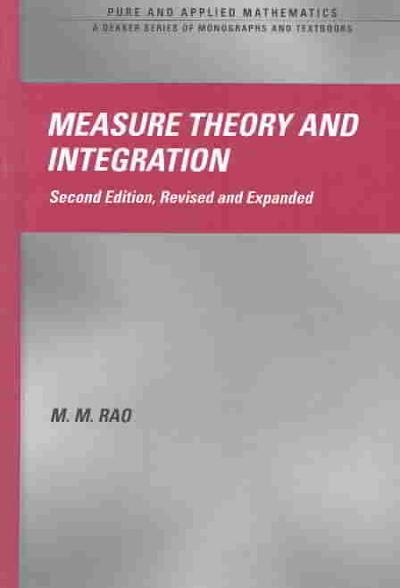Suppose that 995 smokers each received a nicotine patch, which delivers nicotine to the bloodstream at a much slower rate than cigarettes do. Dosage was decreased to 0 over a 12 week period. Of these 995 people, 245 were still not smoking 6 months after treatment. Assume this sample is representative of all smokers. (a) Use the given information to estimate the proportion of all smokers who, when given this treatment, would refrain from smoking for at least 6 months. (Round your answer to three decimal places.) (b) Verify that the conditions needed in order for the margin of error formula to be appropriate are met. The condition that the sample is a random sample from the population of Interest or the sample is selected in a way that should result in a representative sample is --Select-- O . The condition that the sample size is large Is --Select--- 0 . (c) Calculate the margin of error. (Round your answer to three decimal places.) (d) Interpret the margin of error In the context of this problem. It is impossible that the estimated proportion of smokers who, when given this treatment, would refrain from smoking for at least six months differs from the true population proportion by less than the value calculated in part (c). It is unlikely that the estimated proportion of smokers who, when given this treatment, would refrain from smoking for at least six months differs from the true population proportion by less than the value calculated in part (c). It Is likely that the estimated proportion of smokers who, when given this treatment, would refrain from smoking for at least six months differs from the true population proportion by the value calculated in part (c). It is unlikely that the estimated proportion of smokers who, when given this treatment, would refrain from smoking for at least six months differs from the true population proportion by more than the value calculated in part (c). It is impossible that the estimated proportion of smokers who, when given this treatment, would refrain from smoking for at least six months differs from the true population proportion by more than the value calculated in part (c)







